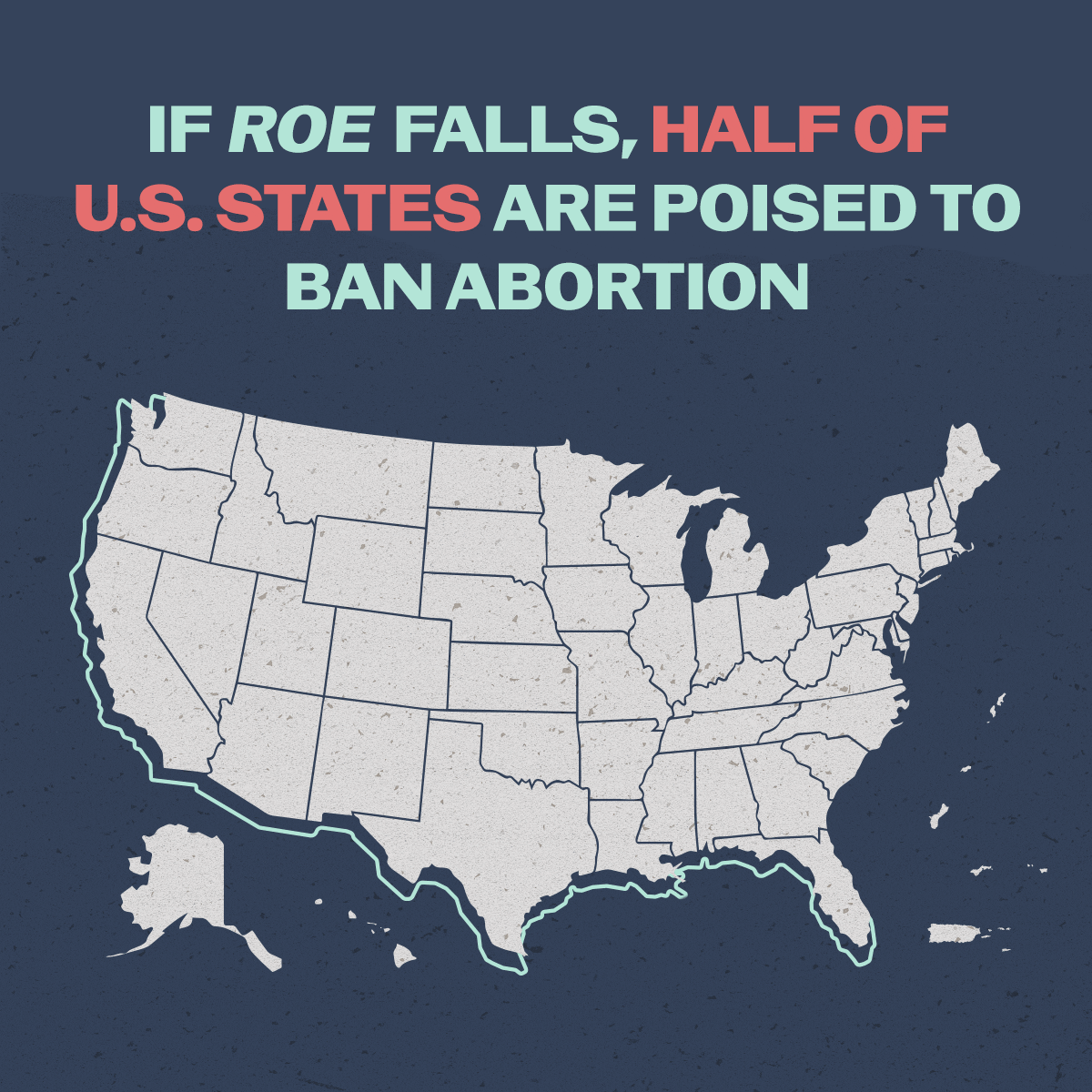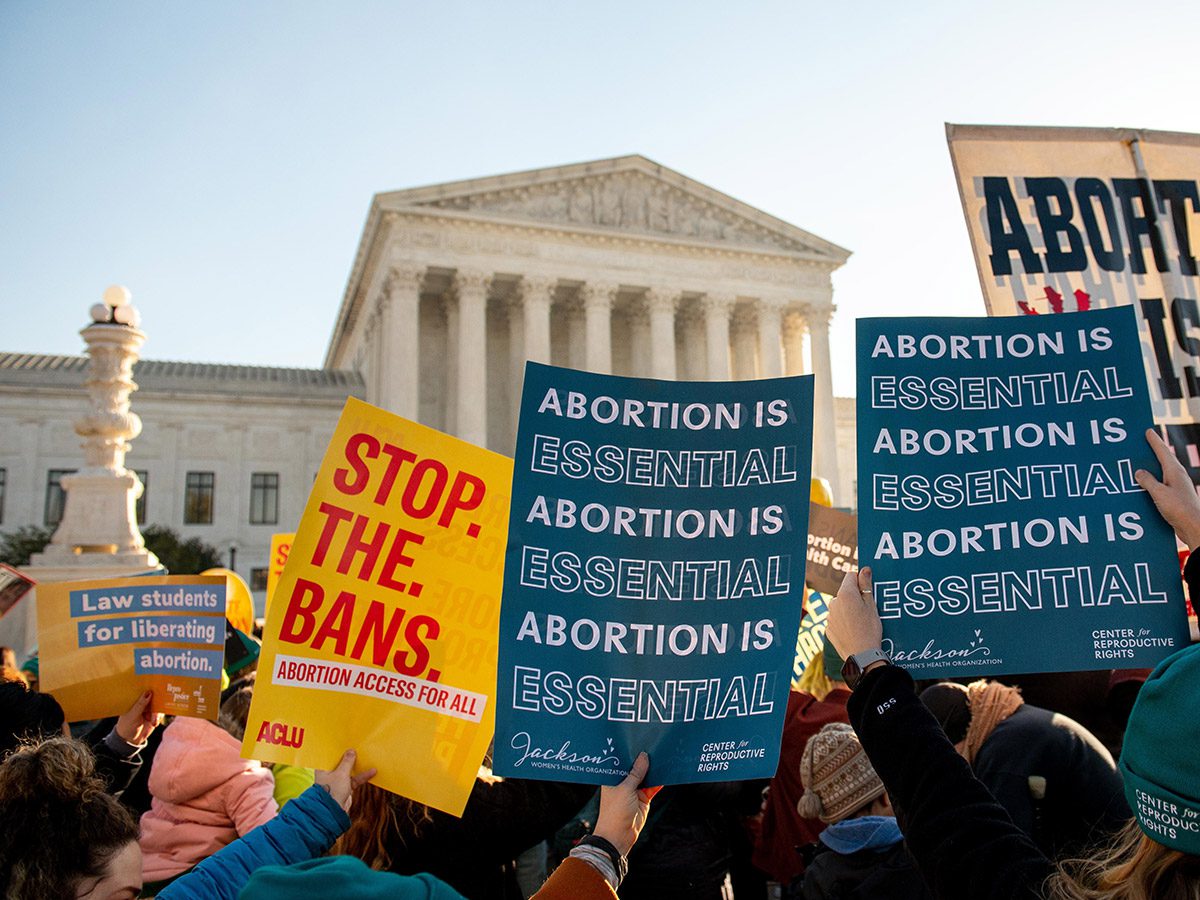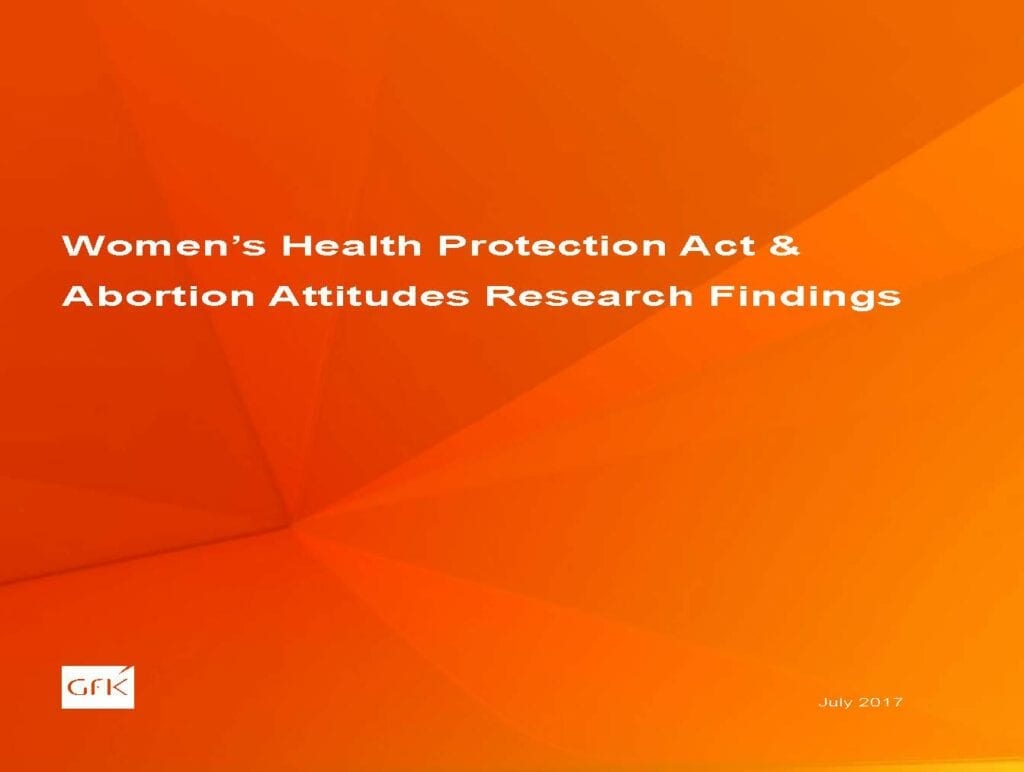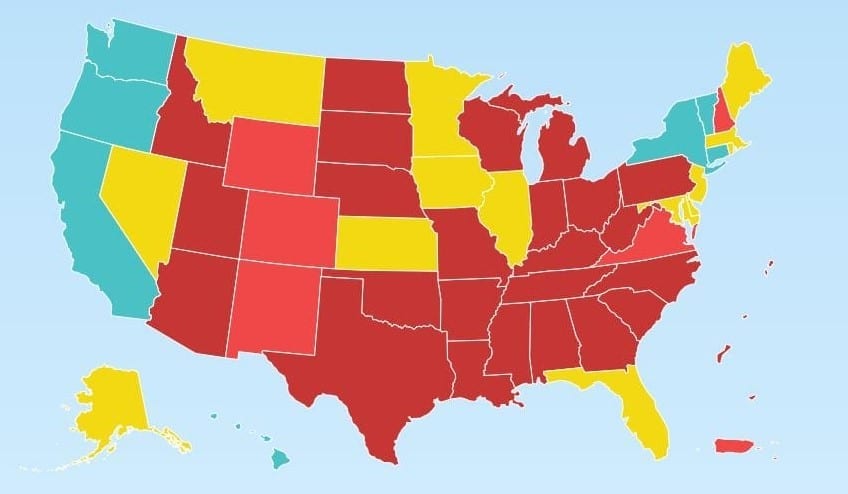Roe at 49: Will the U.S. Supreme Court Allow More States to Ban Abortion?
As the Court allows Texas to end most abortion access, almost half the U.S. states are ready to ban abortion if Roe is gutted.

Yesterday, the U.S. Supreme Court again refused to step in to block Texas’s blatantly unconstitutional law and vigilante scheme that has ended most abortion access in the state since September. To obtain abortion care, Texans must now drive hundreds of miles to other states, while others without the means to travel are being forced to carry pregnancies against their will.
“Texas provides a startling preview of the chaos and panic that will happen across large swaths of the nation if we lose the protections of Roe,” said Nancy Northup, President and CEO of the Center for Reproductive Rights in a statement on the 49th anniversary of Roe on January 22.
In 1973, the U.S. Supreme Court’s ruling in Roe v. Wade recognized that the decision whether to continue a pregnancy or have an abortion, which impacts a person’s body, health, family and future, belongs to the individual, not the government.
More about U.S. state abortion laws.
“What if Roe fell?” Interactive Tool
Which states are hostile to abortion? Which states have acted to protect abortion rights? Learn all about U.S. state and territory abortion laws and policies.
Despite nearly half a century of precedent affirming the constitutional right to abortion, this spring the Supreme Court is expected to rule on the Center’s case challenging a Mississippi abortion ban that directly challenges Roe v. Wade. In that case, Mississippi is asking the Supreme Court to overturn Roe—and nearly 50 years of precedent—and rule there is no right to abortion in the Constitution.
What if Roe falls?
Although the vast majority of Americans support the right to abortion—and nearly one in four women will have an abortion in her lifetime— nearly half of U.S. states could act to ban abortion if the Supreme Court overturns Roe v. Wade.
The Center’s Legislative Wrap-up reports that in 2021, states across the U.S. passed laws restricting and banning abortion at a rate higher than in any previous year since the U.S. Supreme Court affirmed the constitutional right to abortion in 1973.
According to the Center’s “What if Roe fell?” interactive tool of U.S. state and territory abortion laws and policies, 24 states would likely take action to prohibit abortion outright. Twelve states—including Mississippi—already have “trigger” bans in place that are intended to ban abortion if the Supreme Court were to overturn or weaken Roe v. Wade.
“What if Roe fell?” examines several legal factors—including laws, constitutions, and court decisions on abortion—and categorizes 24 states as “hostile” to abortion. In addition, five states fall into the “not protected” category, where concern is warranted since abortion is not protected under state law.
Which states are likely to ban abortion if the Supreme Court overturns or weakens Roe? Find out here with the Center’s “What if Roe fell?” tool.
A Federal Legislative Solution is Needed: The Women’s Health Protection Act
To protect the right to abortion nationwide, a federal legislative solution is needed — and the Women’s Health Protection Act (WHPA) is that law. WHPA would protect the right to access abortion care throughout country by creating a safeguard against bans and medically unnecessary restrictions and by providing additional tools to challenge state abortion bans and defend providers of abortion care.
WHPA has has already passed the House — and now the Senate needs to take urgent action and pass WHPA.
Click here to urge your Senator to pass WHPA now—and help protect abortion rights across the U.S.
Read more:
Full statement by Nancy Northup: 49th Anniversary of Roe v. Wade Could be the Last, 01.20.22



